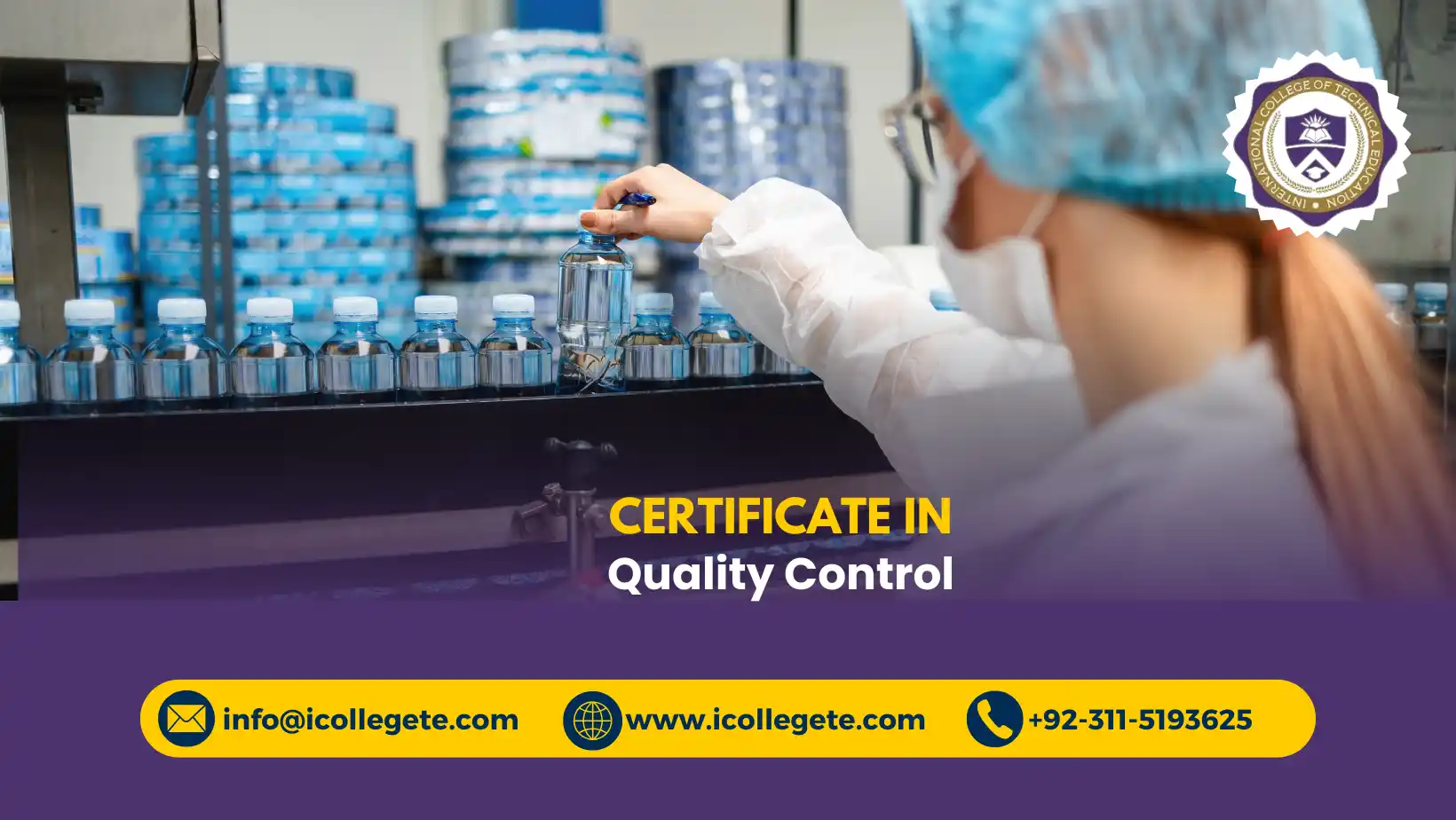Quality Control (QC) is a critical aspect of every industry, ensuring that products and services meet the required standards and specifications. In Islamabad, there are various institutions offering specialized courses in Quality Control, providing students with the knowledge and skills needed to perform quality assurance in different sectors. The Quality Control course is designed for individuals looking to enter the field of quality management or those who wish to enhance their expertise in this area.
The Quality Control course in Islamabad offers a comprehensive understanding of the principles and practices of quality management and control. The course covers various aspects of QC, including inspection techniques, process management, quality standards, statistical analysis, and problem-solving. It is suitable for both beginners and professionals who want to develop a deeper understanding of QC procedures. The program combines theoretical knowledge with practical skills, equipping students to handle quality control tasks effectively in any organization.
Study Units
The Quality Control course typically consists of the following study units:
- Introduction to Quality Control: This module covers the fundamentals of QC, its significance in various industries, and the role of QC professionals.
- Quality Management Systems: An overview of different quality management systems such as ISO 9001, and their importance in maintaining standards and consistency.
- Inspection and Testing Techniques: This unit focuses on the methods used to inspect and test products, including visual inspections, destructive testing, and non-destructive testing (NDT).
- Statistical Quality Control: Learn how statistical tools and methods are used to analyze data and monitor production processes for maintaining quality standards.
- Quality Control in Manufacturing: This module explores the application of QC principles specifically in the manufacturing industry, with a focus on process control and defect prevention.
- Problem Solving and Root Cause Analysis: This unit introduces techniques for identifying and resolving quality issues, including root cause analysis and corrective actions.
- Regulatory and Compliance Standards: Understand the legal and regulatory requirements for quality control, with a focus on compliance with international standards and industry-specific guidelines.
Learning Outcomes
Upon completion of the Quality Control course, students will be able to:
- Understand the core principles and practices of quality control.
- Apply quality management systems and standards in real-world scenarios.
- Conduct inspections and tests using various QC techniques.
- Use statistical tools for analyzing quality data and controlling processes.
- Identify quality problems and implement effective solutions using problem-solving techniques.
- Ensure compliance with regulatory and industry-specific quality standards.
- Improve operational efficiency and reduce defects in products and services.
Course Benefits
- Industry-Relevant Skills: Students acquire practical skills that are directly applicable in various sectors such as manufacturing, healthcare, and service industries.
- Improved Career Opportunities: With the growing emphasis on quality in all industries, completing a QC course opens up a range of career opportunities for individuals in quality assurance and management roles.
- Global Recognition: Quality Control professionals are in demand worldwide. By mastering QC principles, students position themselves for international career prospects.
- Enhanced Organizational Performance: Students learn how to implement QC strategies that contribute to improving operational efficiency and product quality, which can have a positive impact on a company’s bottom line.
- Networking Opportunities: Studying in a structured environment allows students to connect with industry professionals and experts, providing valuable networking opportunities.
Who Is This Course For?
The Quality Control course is ideal for:
- Aspiring QC Professionals: Individuals who wish to build a career in quality control and quality management.
- Industry Professionals: Employees working in manufacturing, production, or service sectors who want to enhance their understanding of quality control processes.
- Managers and Supervisors: Professionals in management positions who are responsible for overseeing production processes and ensuring quality standards are met.
- Engineers and Technicians: Engineers, technicians, and analysts in any industry seeking to understand the technical aspects of quality control.
- Quality Assurance Professionals: Individuals who are already working in quality assurance but want to further refine their QC knowledge.
Future Progression for This Course
After completing the Quality Control course, students can further progress in the following ways:
- Certification in Quality Management: Students may opt for advanced certifications in Quality Management, such as Six Sigma or ISO certifications, to enhance their qualifications.
- Advanced QC Roles: Graduates may pursue higher-level positions in quality assurance, such as Quality Control Supervisor, Quality Manager, or Quality Assurance Manager.
- Specialized Areas: Students can choose to specialize in specific areas of QC, such as product testing, process control, or regulatory compliance, expanding their expertise in these niches.
- Further Academic Studies: Individuals interested in deepening their theoretical knowledge may pursue advanced degrees or diplomas in quality management or industrial engineering.
the Quality Control course in Islamabad is an essential program for anyone looking to build a solid foundation in quality management. Whether you are new to the field or already working in a related role, this course offers a well-rounded education that can help boost your career and provide you with the tools to make a significant impact on any organization’s quality practices.





